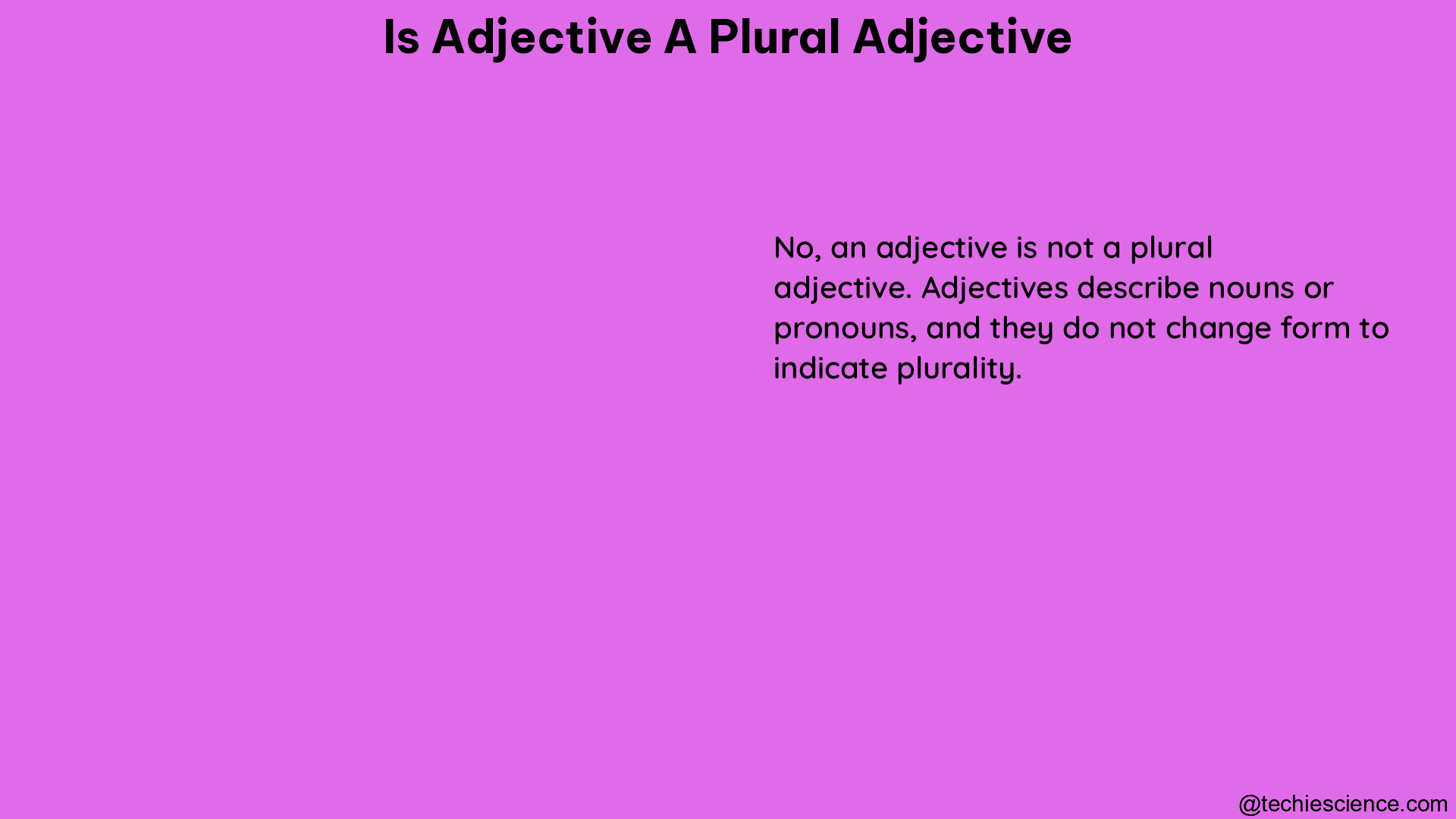No, adjectives in English do not take the plural ending. However, some adjectives can be used as nouns, in which case they may pluralize like any other noun. For example, “modal” can be used as a noun, but “wounded” is not typically used in this way.
Attributive Nouns: When Nouns Act as Adjectives
Some nouns can act as adjectives, and in these cases, they may appear in the plural form. This is known as an “attributive noun.” Examples include:
- “Teachers unions”
- “Girls hockey”
- “Womens rights”
- “Mens fashion”
In these instances, the plural noun is modifying another noun, functioning as an adjective. The plural form is used to indicate that the noun is describing a group or collection of the item.
Plural Nouns as Adjectives

There is no clear-cut rule for when a plural noun should be used as an adjective, but there are some general tendencies:
- Nouns Referring to People: Plural nouns referring to people are often used as adjectives. For example:
- “Womens soccer team”
- “Childrens hospital”
-
“Customers service desk”
-
Nouns That Are Typically Plural: Nouns that are usually plural in form tend to remain plural when used as adjectives. For instance:
- “Scissors blade”
- “Glasses frame”
- “Trousers pocket”
However, these patterns are not absolute, and there can be exceptions. The choice to use a singular or plural noun as an adjective often comes down to the specific context and meaning the writer is trying to convey.
Adjective Agreement in Other Languages
In some languages, such as French, most adjectives must agree in number with the noun they modify. The plural of adjectives is formed by adding an “s” to the singular form, except for those adjectives that already end in “s” or “x,” which remain the same in the plural.
For example, in French:
- Singular: “un beau livre” (a beautiful book)
- Plural: “de beaux livres” (beautiful books)
But:
- Singular: “un prix heureux” (a happy prize)
- Plural: “des prix heureux” (happy prizes)
This type of adjective agreement is not a feature of the English language, where adjectives generally do not change form to indicate plurality.
Conclusion
In summary, while adjectives in English do not take plural endings, there are some cases where plural nouns can be used as adjectives, particularly when referring to groups of people or items that are typically plural. However, the use of singular or plural nouns as adjectives is often context-dependent and does not follow a strict set of rules. Understanding these nuances can help English language learners and writers use adjectives and nouns more effectively in their writing.
Reference:
- https://english.stackexchange.com/questions/301116/can-adjectives-get-plural-s
- https://ell.stackexchange.com/questions/24200/how-do-you-use-plural-or-singular-form-of-an-adjective
- https://www.britannica.com/dictionary/eb/qa/can-a-plural-noun-act-as-an-adjective
Hey! I am Arpita Bose Roy. My qualifications are M.A. in English with B. Ed. in both general education and special education. I have 2 years of experience as a “language analyst” at IIT Kharagpur and 4 years of experience as an “Academic Content Developer” at IIT Kharagpur. Currently, I am working as an academic writer at Lambdageeks.